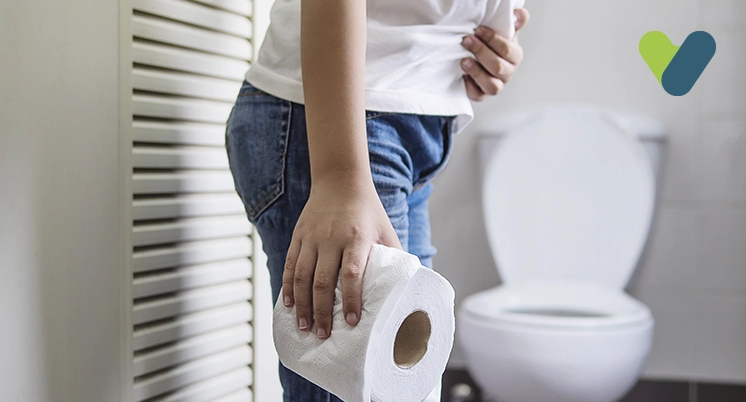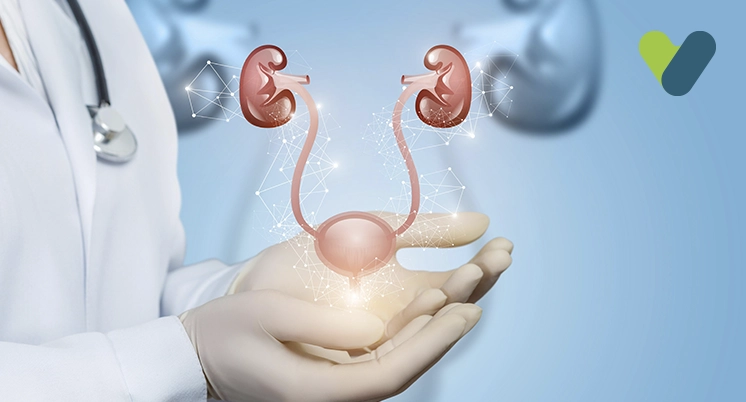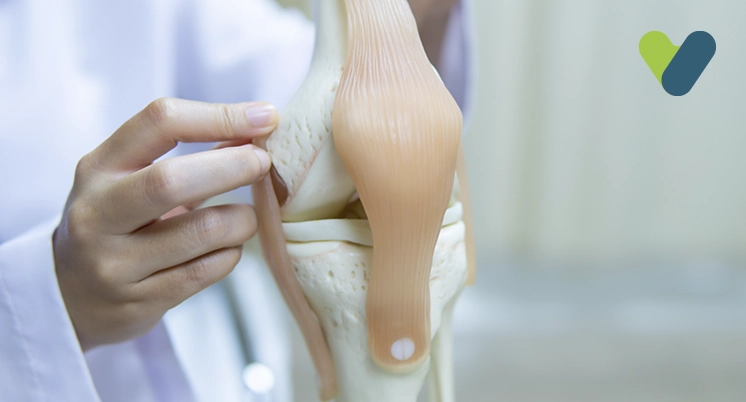Overview
Piles, also known as haemorrhoids, are swollen veins surrounding the anus (called external haemorrhoids) or within the anal canal (called internal haemorrhoids). When swollen rectal or anal tissue becomes damaged, it can cause significant bleeding and pain.
Often, piles do not cause any symptoms, and people are unaware that they may have them. If symptoms appear, they could include:
- A lump near the anus or within the anal canal
- Bleeding following a bowel movement
- Bottom itch
- Anus swelling and pain
- After a bowel motion, a slimy mucus discharge occurs.
Piles usually go away on their own, and yet nutritional modifications and simple treatment options may be advised to ease the symptoms in the meantime. Severe piles may necessitate more intensive treatment, depending on their location.
If the piles are located in the upper two-thirds of the anal canal, non-surgical treatments including sclerotherapy, electrotherapy, and banding may be considered; if they are in the lower third, which is closest to the anus, surgical intervention may be required since the lower third has many nerve endings, which can make the non-surgical options discomforting and painful.
Although piles are generally treatable with lifestyle changes, creams, ointments, or non-surgical methods, one out of every ten people will require surgery. Haemorrhoidectomy, haemorrhoidal artery ligation, and stapling, are the most common surgical procedures used to treat piles.
Haemorrhoidectomy
Haemorrhoidectomy is the surgical excision of external or internal haemorrhoids, typically while the patient is anaesthetised. This is the most effective treatment for severe haemorrhoids.
Closed haemorrhoidectomy Internal haemorrhoids are generally treated with a closed haemorrhoidectomy. Haemorrhoids are removed with a sharp tool or laser and sutured closed. Patients are recommended to use sitz baths after the procedure, avoid being constipated, and take mild pain relievers.
Open haemorrhoidectomy The excision of the haemorrhoids is performed while the patient is under general anaesthesia. The haemorrhoids are excised with a sharp instrument, and the wound made during a haemorrhoidectomy to excise the haemorrhoids is left open, unlike in a closed haemorrhoidectomy. This method may be preferred when haemorrhoids are awkwardly located or extensive, and closing the incision would be difficult or increase the likelihood of infection after the procedure.
Stapling
This method, also known as stapled haemorrhoidopexy, is an alternative surgical option to haemorrhoidectomy and is sometimes used to treat prolapsed haemorrhoids. Stapling is less popular than it once was due to a slightly higher likelihood of serious complications when compared to other methods.
This procedure entails stapling the last segment of the large intestine, due to which the blood supply to the haemorrhoids diminishes and eventually causes them to shrink slowly. It also reduces the possibility of prolapsing haemorrhoids. Patient recovery is quicker than with haemorrhoidectomy, and patients may be able to go back to work within a week, usually. It has also been associated with causing less postoperative pain.
Haemorrhoidal artery ligation
This surgical operation is an effective and safe option for stapling and haemorrhoidectomy. The goal is to restrict blood flow to the haemorrhoids. An ultrasound probe is inserted into the anus and used to pinpoint the vessels supplying the haemorrhoid. These blood vessels are then stitched shut to prevent blood flow. The haemorrhoid begins to shrink since its blood supply is cut off. Stitching may also be used in treating prolapsed anus haemorrhoids (that hang from the anus).
Patients are more satisfied with the results of haemorrhoidal artery ligation than with the other procedures since the procedure causes less pain following the surgery. This surgical technique also requires a relatively short patient recovery time and has a minimal risk of bleeding and pain during bowel movements.
What to expect before the piles surgery?
- The surgeon may recommend certain blood tests and perform a physical examination and rectal examination to feel the haemorrhoids.
- Bowel preparation using either a colon lavage solution or an enema will be performed under the nurse's or doctor’s supervision.
- Patients may be advised to make dietary changes such as drinking more water, eating more fruits and vegetables, avoiding difficult-to-digest foods such as red meat, and abstaining from alcohol for at least 3-4 days prior to the procedure.
- Patients will be asked about the prescription as well as the non-prescription medication they are currently taking, and it will be modified as per the surgeon’s recommendation because certain medications can interfere with the healing and surgical procedure.
What to expect on the day of the surgery?
- The patient must arrive at the hospital well before the appointed time.
- In the presence of the patient's family, they will be requested to fill out the consent form.
- The patient will be asked to change their clothes, remove their jewellery, and put on a hospital gown.
- A nurse will insert a catheter into the patient's forearm or hand.
- Vital signs will be monitored.
- The medical team may administer enemas to the patient two hours before the surgical procedure to aid in the removal of stools that may have been lodged in the intestines.
- The patient will be transferred to the operating room.
What to expect during the piles surgery?
- In order to prevent swelling, infection, and bleeding, an IV line would be placed into the patient's arm.
- The patient will require either general anaesthesia to be asleep throughout the surgery.
- After the patient has fallen asleep, the surgeon then inserts an anoscope into the anal canal to closely examine the haemorrhoids.
- A speculum is then introduced to display the haemorrhoid to be operated on.
- Further to this, the surgeon uses any one of the above-mentioned techniques, depending on the patient’s condition, and the surgical procedure will be completed.
What to expect after the piles operation?
- The patient will be transferred to the recovery room until they become conscious, and their vitals will be monitored. Once the patient is conscious, they will be transferred to the hospital room.
- It is possible that the swelling of the muscles around the anus may cause difficulty urinating.
- The patient will be discharged from the hospital once the effects of anaesthesia have worn off and the patient has urinated.
After discharge, The healing time for surgical haemorrhoid removal procedures varies. It may take between one and three weeks to fully recover.
People who have had surgery can aid their recovery by doing the following:
- Taking proper wound care
- Consume a fibre-rich diet
- Consume plenty of water
- Avoid prolonged sitting in one place
- Take a sitz bath
- Not strain during bowel motions
- Avoid heavy lifting
What are the complications associated with pile operation?
The piles surgery is almost always successful, but it may result in complications such as:- Anal constriction
- Urinary tract infection
- Pain
- Urinary retention
- Incontinence of faeces
- Faeces impaction
When should you see a doctor?
You should consult a doctor right away if you experience the following:- Signs of infection like fever and swelling
- Severe pain or bleeding
- Unexpected rectum drainage or pus
- Urinary or bowel problems
What is the haemorrhoidectomy surgery cost in India?
Piles surgery or haemorrhoidectomy costs between Rs. 40,000 and Rs. 150,000. These are rough estimates, and the actual cost may vary from person to person.
Here are some of the factors determining the cost of the surgery:
- The severity of piles
- Technology used
- Patient's age.
- Other medical problems the patient may be suffering from
- The type of medical centre selected
Takeaway
All types of haemorrhoid surgery entail safe procedures for effectively treating haemorrhoids. They are an alternative, regardless of whether other nonsurgical treatment options have failed. Most people can fully recover in one to three weeks.
Although serious complications are uncommon, some bleeding may occur following surgery. If the bleeding gets severe, seek medical attention immediately.


